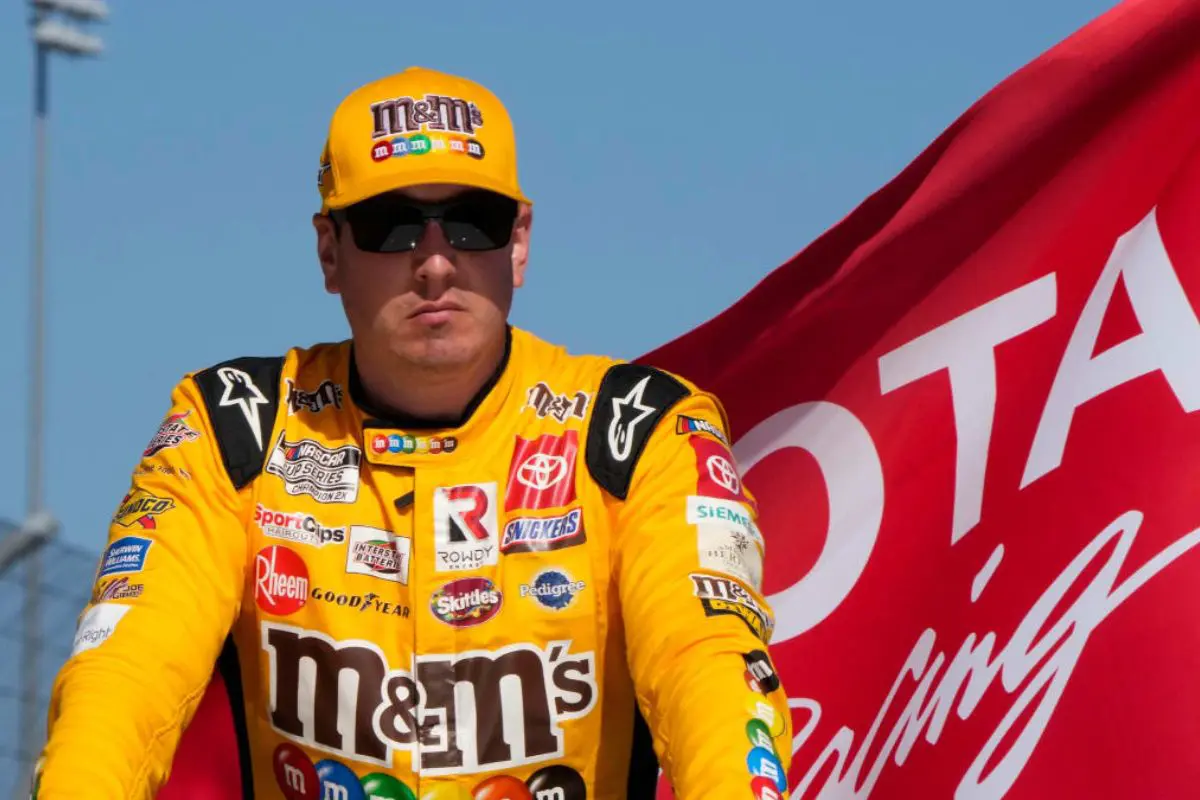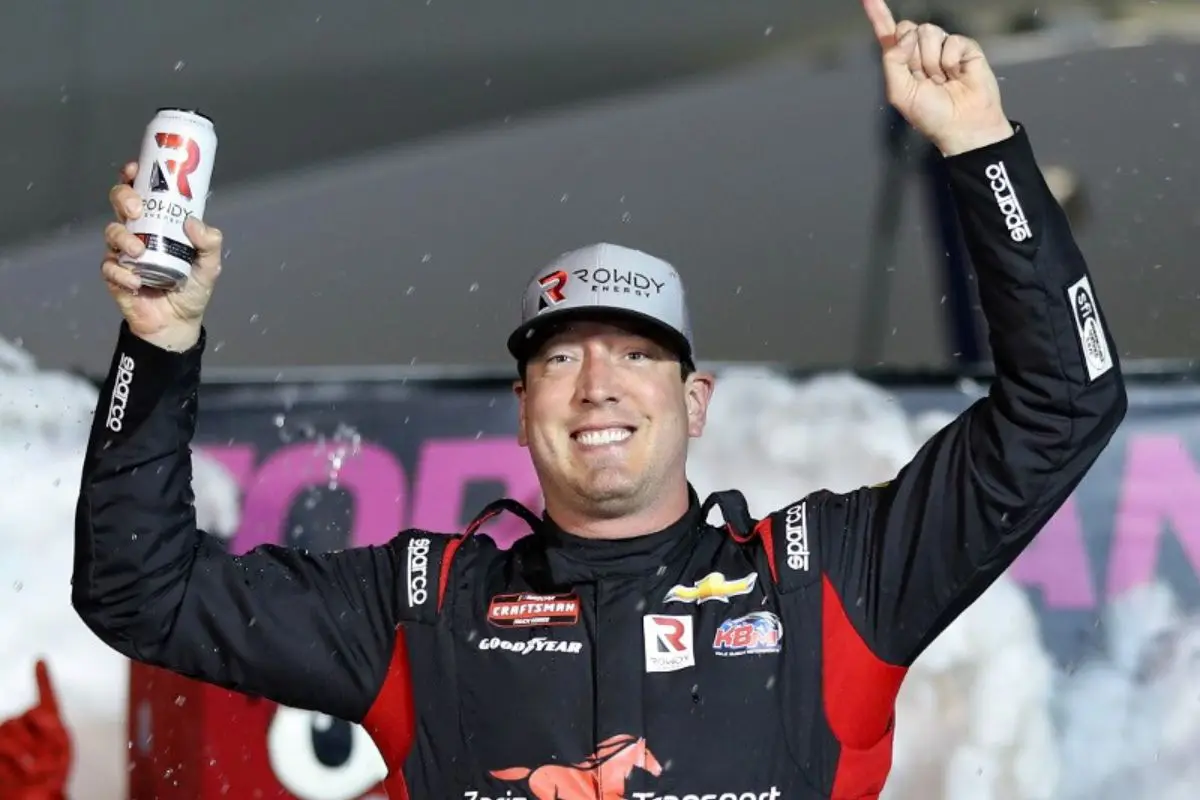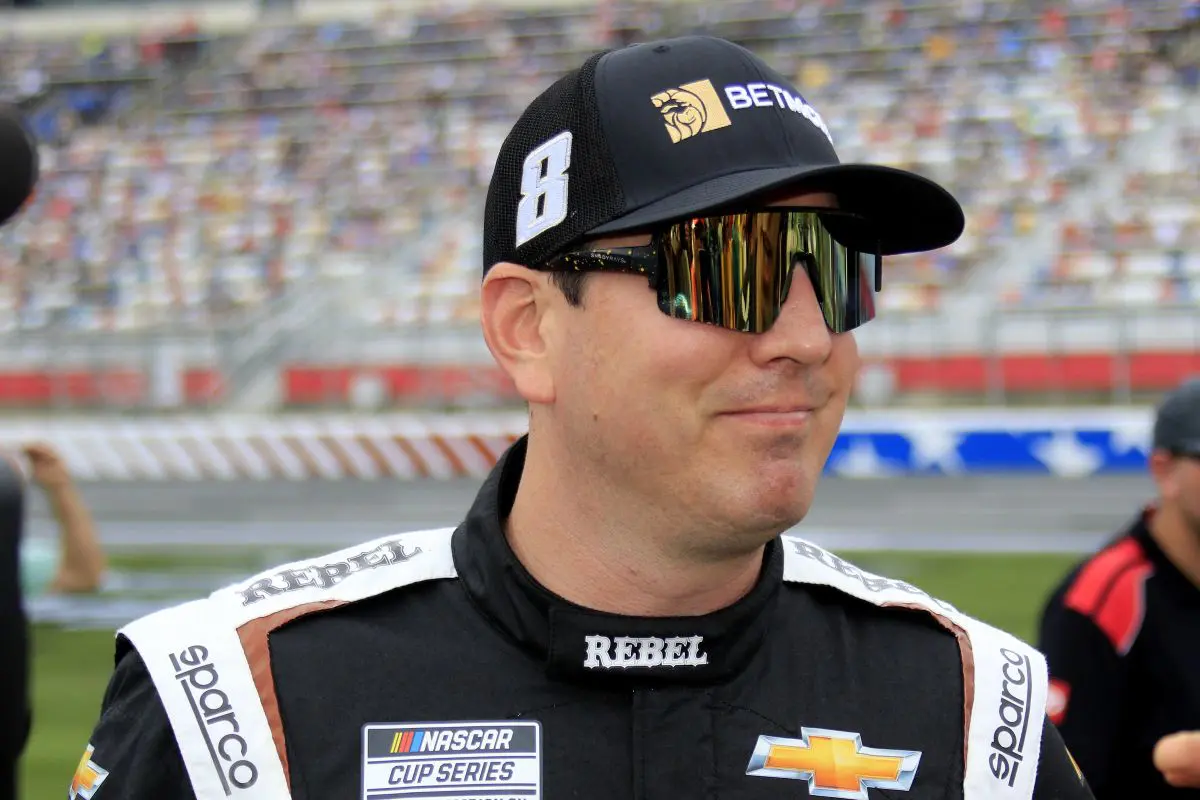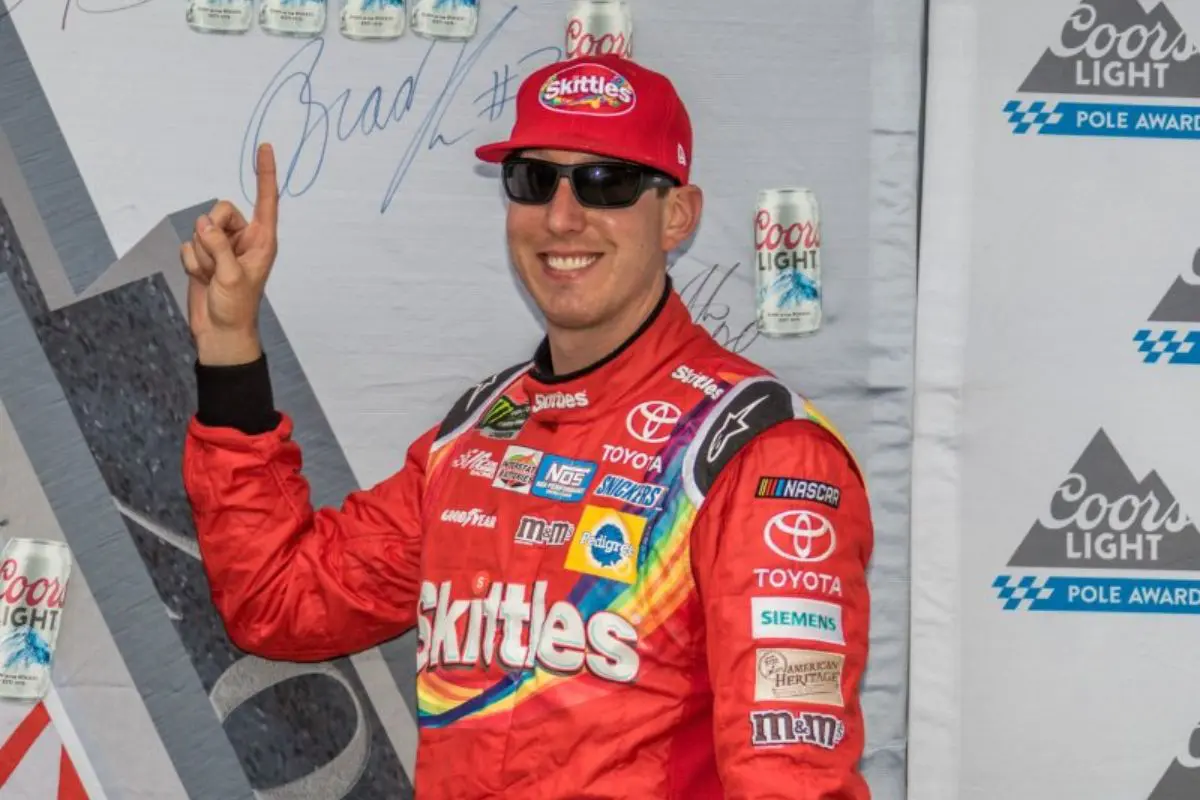Kyle Busch’s Legendary Rant After Las Vegas Crash: Kyle Busch‘s impassioned tirade following the 2019 South Point 400 crash serves as a vivid illustration of the emotional volatility inherent in professional racing. His confrontation with lapped driver Garrett Smithley not only resulted in a frustrating 19th-place finish but also highlighted the broader discourse surrounding the challenges faced by lower-tier competitors. Busch’s candid remark, “I’m just here so I don’t get fined,” encapsulates the tension between media expectations and the raw realities of competition. This incident raises critical questions about the pressures athletes endure and the implications for the sport as a whole. What does this reveal about the dynamics of racing?
Key Highlights
- Kyle Busch expressed frustration after a collision with Garrett Smithley during the 2019 South Point 400, resulting in a damaged car and a 19th place finish.
- Busch’s quote, “I’m just here so I don’t get fined,” highlighted his disdain for media questioning following the crash.
- Other drivers, including Garrett Smithley and Joey Gase, defended their racing decisions and highlighted the challenges faced by lower-tier drivers.
- Busch’s social media reactions showed defensiveness, emphasizing the unpredictable nature of racing and the complexities of interacting with lapped cars.
- Despite the incident, Busch showcased resilience throughout the 2019 NASCAR Cup Series playoffs, ultimately winning his third championship title.
Kyle Busch’s Frustration After Contact with Garrett Smithley
Although Kyle Busch is known for his competitive spirit, his frustration reached a boiling point following a controversial incident with Garrett Smithley during the 2019 South Point 400 in Las Vegas. The race unfolded with Busch attempting to lap Smithley, who was considerably off the pace and twelve laps down. As Busch approached, he anticipated that Smithley would yield, a common expectation in professional racing. However, Smithley maintained his line, leading to an unfortunate collision that resulted in damage to Busch’s car and a disappointing 19th-place finish for the seasoned driver.
This incident not only impacted Busch’s performance but also ignited a torrent of emotions that he would later express in a post-race interview. His terse remarks reflected a deeper frustration with the situation, as he felt compelled to deal with the consequences of another driver’s decisions.
When pushed by reporters about his chances at the upcoming Homestead race, Busch’s responses were curt, indicating that his focus was not on future prospects but rather on the immediate irritation stemming from the Smithley incident.
His proclamation, “I’m just here so I don’t get fined,” encapsulated his disdain for the media’s line of questioning, which he deemed unworthy of his time and attention.
“I’m answering the dumbest f*cking questions over and over again. Am I good?” – Busch
View this post on Instagram
The episode serves as a vivid illustration of how intense competitive environments can heighten emotions, revealing the raw human side of elite athletes like Busch, who navigate the pressures of both performance and public examination.
Responses from Garrett Smithley and Joey Gase
In the aftermath of the Las Vegas incident, Garrett Smithley and Joey Gase offered pointed responses that reflected their perspectives as drivers operating in different tiers of NASCAR. The two Xfinity Series competitors voiced their opinions in a manner that highlighted the complexities of racing dynamics between diverse series.
Smithley articulated a vital point by asserting that Kyle Busch, despite his honors, lacks an understanding of the challenges faced by lower-tier drivers. “He’s never been in the position we’ve been in so he doesn’t know how that goes,” Smithley stated, implying that Busch’s experience in a top-tier playoff-contending car creates a disconnect from the realities of racing with less powerful vehicles.
Gase echoed this sentiment, suggesting that Busch’s performance expectations might be skewed by his own vehicle’s capabilities. “If he wants to switch cars, I’d be happy to,” Gase quipped, emphasizing the clear differences in performance and handling between their cars and Busch’s. This comment not only highlights the disparities in equipment but also invites reflection on the broader narrative of talent versus technology in NASCAR.
Caught up with Gase and Smithley in the garage after their late-race run-ins with Kyle Busch. Their response to hearing that Busch was critical of them:
Full story/comments to come. #NASCAR | #NASCARPlayoffs pic.twitter.com/Ol51ODSOtb
— Zack Albert (@zack_albert) September 16, 2019
Both drivers defended their positions with a keen awareness of racecraft, noting that they adhered to competitive standards despite the outcome.
Smithley pointed out that two cars passed him while he maintained his line, reinforcing the notion that responsibility on the track can be multifaceted. Their responses demonstrate a blend of frustration and professionalism, capturing the inherent tension within a sport where skill and machine often collide.
Kyle Busch’s Response on Social Media
Kyle Busch’s response on social media following the Las Vegas crash reflects a mixture of defensiveness and frustration that emphasizes the complexities of driver interactions in NASCAR. His tweets not only addressed the incident but also served as a platform for Busch to express his frustrations toward critics and fellow drivers.
“Trust me man […] if I could have moved up or down without crashing, don’t [you] think I would have? C’mon man!! If I knew he was going to run that lane, I would have went higher. I can’t predict everything all the time.” – Busch
By articulating his perspective on the crash, he clarified the unpredictable nature of racing, emphasizing that no driver can foresee every potential outcome on the track.
In his replies, Busch highlighted the challenges faced by drivers, particularly when managing interactions with lapped cars. His statements resonate with the following sentiments:
- Frustration with Misunderstanding: Busch lamented that fans and critics often lack an all-encompassing understanding of the split-second decisions drivers must make.
- Acknowledgment of Complexity: He recognized the inherent complexities of racing dynamics, where even top-tier drivers are at the mercy of unforeseen circumstances.
- Defensive Solidarity: By agreeing with Corey LaJoie’s analysis of track awareness, Busch showed a willingness to engage constructively, even amidst criticism.
Absolutely!! Agreed! On track awareness is the point.
Some lapped cars are always a moving target. I was told the 52 was running high, so I went middle cause I couldn’t follow the 24 when he went low cause u can’t follow anyone in these cars! https://t.co/8lpLRrwQlw
— Kyle Busch (@KyleBusch) September 16, 2019
Busch’s candidness on social media not only defended his actions but also highlighted the emotional toll that racing incidents can have on drivers.
His perspective invites fans to reflect on the multifaceted challenges of NASCAR, revealing that behind the wheel, drivers are maneuvering through a labyrinth of decisions, instincts, and unexpected variables.
Kyle Busch’s 2019 Championship
Steering through the pressures of the NASCAR Cup Series playoffs, Busch showcased resilience and tactical expertise throughout the 2019 season, culminating in his third championship title. The season was not without its challenges; Busch faced a rocky start in the playoffs, which tested his mental fortitude and racing acumen.
However, his ability to adapt and recalibrate strategies was a hallmark of his championship run. The Championship 4 race at Homestead-Miami Speedway became a battleground where Busch’s calculated approach paid dividends. Competing against formidable rivals like Martin Truex Jr., Kevin Harvick, and Denny Hamlin, Busch exhibited an acute understanding of race dynamics and tire management.
His driving displayed a blend of aggression and precision, crucial for maneuvering the high-stakes environment of the final race. Busch’s triumph was not merely a result of raw speed but also a reflection of his team’s cohesive execution and strategic skill.
The synergy between driver and crew chief was evident as they made real-time decisions that improved Busch’s performance on the track. This championship solidified his legacy within the sport, proving that resilience, adaptability, and teamwork are as critical as talent.
In retrospect, the 2019 season was a reflection of Busch’s evolution as a driver, illustrating that mastery in NASCAR transcends mere physical skill. It encapsulates the art of racing—an intricate dance of strategy, psychology, and execution that ultimately leads to glory.
News in Brief: Kyle Busch’s Legendary Rant After Las Vegas Crash
The aftermath of Kyle Busch’s 2019 South Point 400 crash serves as a poignant reminder of the complexities within NASCAR, highlighting the tensions between seasoned competitors and lower-tier drivers. Busch’s visceral reaction not only reflects the emotional strain of high-stakes racing but also ignites discussions regarding the responsibilities of lapped drivers. The incident emphasizes the necessity for continued dialogue about driver interactions, safety protocols, and the broader implications of competitive dynamics within the sport.
ALSO READ: Kyle Busch Gears Up for Speedway Win Following Strong Atlanta Cup Finish




